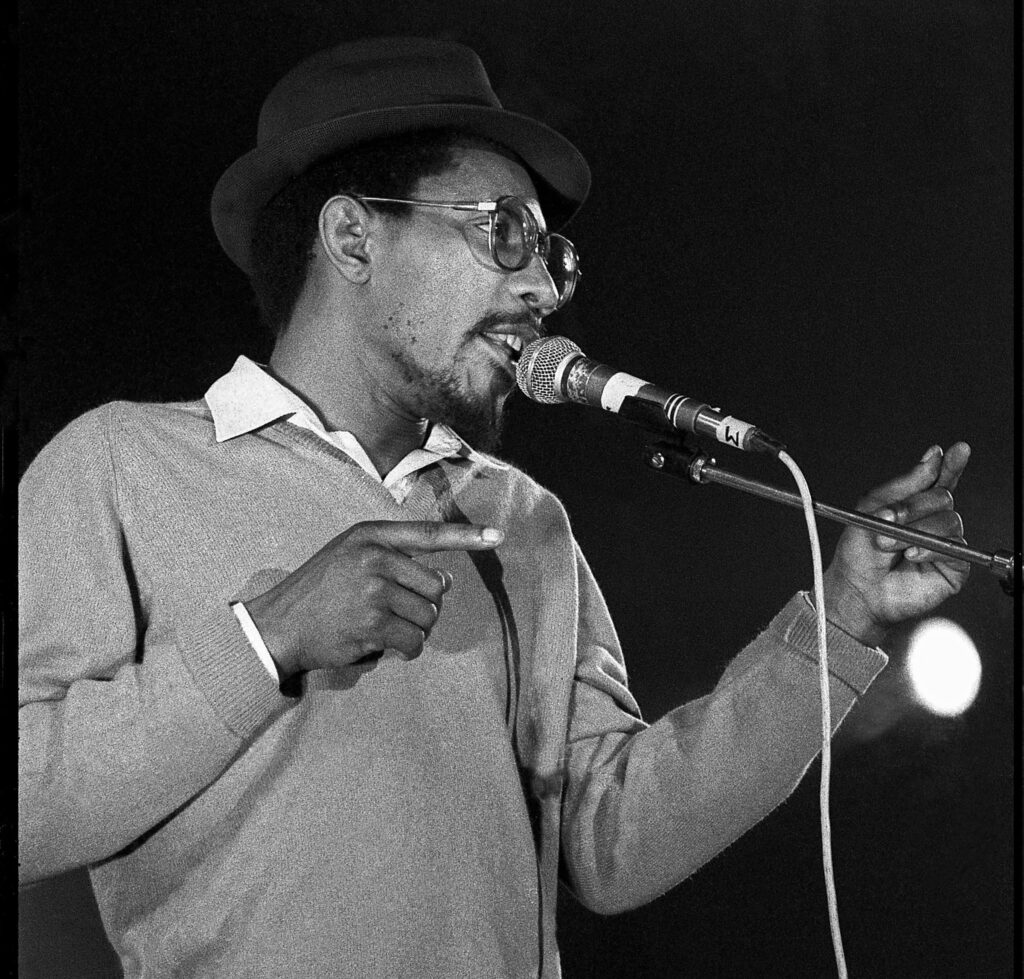Reggae had a rough ride from the British media in the 1960s. As lifelong fan Jerry Dammers suggests in the latest programme of BBC4’s ongoing … Britannia series, the rock press regarded it as "idiot music, some kind of weird novelty." But lack of interest from the inkies wasn’t nearly as big an obstacle to artists as the resistance they encountered from radio, or from a music industry already notorious for its poor treatment of acts.
Before a home grown reggae scene was established in the UK, Jamaican performers struggled to establish a foothold outside of the dancehalls of London, or to even get paid for their records. Kentrick Patrick, who, as Lord Creator, was responsible for the classic ‘Kingston Town’, recalls how he would receive a flat fee of £10 for the rights to release his discs in Britain, with no chance of publishing or royalty payments.
Even after Desmond Dekker registered reggae’s first UK chart-topper, 1969’s ‘Israelites’, it was still rare to hear the music on the radio (Nicky Thomas went as far as releasing a protest single called ‘It’s A Long Walk To The BBC’), and a second Number One, ‘Double Barrel’ by Dave & Ansil Collins, didn’t change things. "You discover that you haven’t got anything to show for what you’ve done," says the duo’s Dave Barker. "I became very depressed and locked myself away for quite a while."
Better deals were eventually offered by Island Records founder Chris Blackwell, and the fledgling Trojan label, but the real groundswell of support came from young Brits listening to hard-to-find 45s in youth clubs; teenagers who would become musicians themselves and make reggae a revolutionary component of their own records.
Mapped out chronologically, Reggae Britannia delivers a superb portrait of the how the music grew to be cherished, the 90-minute documentary divided into four distinct parts. The opening ‘Hard Road To Travel’ section covers the pioneers’ struggles mentioned above, leading to ‘Catch A Fire’ and the emergence of Bob Marley and Jimmy Cliff as symbols of young Jamaicans finding favour in the UK while trying to escape the "rough justice" of Kingston’s gang wars.
It was the harder edge of rebel reggae that inspired the first wave of Brit performers, with black groups such as Aswad and Steel Pulse adapting the rhythms to fit their own experiences of social divisions, but the white kids weren’t far behind, as the ‘Stir It Up’ section of the documentary illustrates. "The rebel stance was something we all associated with," says Paul Simonon of The Clash, who, along with The Slits, saw reggae as an ideological ally.
Others were to follow, such as Elvis Costello and The Police ("We plundered reggae without remorse," admits the latter’s Stewart Copeland), and the Rock Against Racism movement triggered an even more powerful musical multiculturalism. Matumbi’s Dennis Bovell was soon established as the "godfather of British dub", his steely cocophanous productions providing an unwitting soundtrack to the riots in Notting Hill and Handsworth.
Thatcher’s Britain was a breeding ground for dissent, and for all the cheesy vacuousness of the 80s so loved by the producers of lazy nostalgia clips shows, it should be remembered that it was also a decade of some potent politicised music. Beyond what Jerry Dammers himself describes as the "retro culture" of The Specials, the Coventry band were more than just ska revivalists, taking a string of socially relevant singles into the Top Ten. UB40, lest we forget, started out as an articulate and militant band who used reggae as a vital backbeat to their own protest.
Of course, the UB40 of a few years later come in for a bit of stick in the final section of the documentary, ‘Nice Up The Dance’, their earlier activism giving way to a series of vanilla cover versions. The programme makers argue that the appropriation of reggae by the likes of Culture Club on ‘Do You Really Want To Hurt Me?’ may have helped boost the profile of lovers rock, but at the expense of the rebel sounds of yore, although Jazzy B and Soul II Soul are rightly lauded for at least trying to keep more politically aware concerns close to the top of the agenda.
Reggae Britannia offers a well-considered and enlightening history lesson, liberally sprinkled with archive clips to help establish the music’s timeline on these shores. What it doesn’t offer, however, is much in the way of clues as to where reggae goes next, what new innovations might be on the horizon. Perhaps that’s not part of its brief, and it’s up to the next generation of musicians, singers and producers to devour the rich history set out in the documentary, to find the inspiration to ignite the next big fire.
Reggae Britannia airs on BBC4 on 11 Feb at 9pm.


